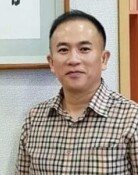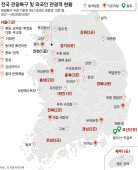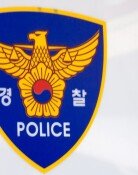A king`s diet
Kings of Korea`s Joseon Dynasty (1392-1910) had to have five meals a day. They started with a soup in the early morning and ate at 10 a.m., 2 p.m., 4-5 p.m., and 7-9 p.m. King Yeongjo, the dynasty`s 21st monarch, ordered three meals and is said to have never eaten when his stomach was full. He seemed to care when people said, I dont need to eat that much, but he indeed ate little because he was a weakling and had a weak stomach. Yeongjo, who did not have a craving for food, lived the longest among the 27 kings of the dynasty. Historians consider the average life expectancy of the time as between 40 and 50 years, but Yeongjo died at age 83 after ruling for 52 years.
A kings health was an important national issue. "Seungjeongwon Ilgi," or "The Diaries of the Royal Secretariat," which is registered as a World Heritage, documented the tastes and meals of Korean kings in detail because food intake matters most in health. A symposium on the dinner table of the Joseon Dynasty prepared by humanities scholars, which was hosted by the Academy of Korean Studies on Wednesday, deals with royal food culture, including King Yeongjos eating habits. Kim Ho, a professor at Gyeongin National University of Education, says in his paper that Korean kings had to discipline themselves not to overeat from an early age even if they had numerous delicacies. Since they lived under protection like a plant in a greenhouse, they were not strong like ordinary people and could easily fall ill due to overeating.
Noblemen as well as kings stressed eating less. Roh Soo-jin, a scholar in the 16th century, wrote, Dont eat too much, dont eat at any time. Eat when you are hungry and dont eat after you are full. Lee Chang-jeong, a high-ranking Joseon official, stressed dietary discipline in his book published in the 12th year of the reign of King Gwanghaegun, saying, One should always eat half a portion and feel that its not enough.
King Yeongjo liked simple meals such as boiled barley with water. Modern medicine says that as one ages, he or she must eat less rice, flour and meat and more whole grains, beans and vegetables. There is a saying that a person needs no doctor if he or she eats until the stomach is 80-percent full. The 83-year life of King Yeongjo is merely the average of a Korean womens life expectancy but given medical advances, it should be considered equivalent to 100 years in these times. His diet was not much different from what doctors recommend today to people with lifestyle diseases.
Editorial Writer Goh Mi-seok (mskoh119@donga.com)
Headline News
- N. Korea redefines S. Korea as ‘hostile state’ in revised constitution
- Samsung develops graphic DRAM with industry-leading capacity and speed
- Three questions allegedly leaked via text message during Yonsei Univ. essay test
- China to inject 340 trillion won in loans to support real estate sector
- Dodgers beat Mets to take 2-1 lead in NLCS







